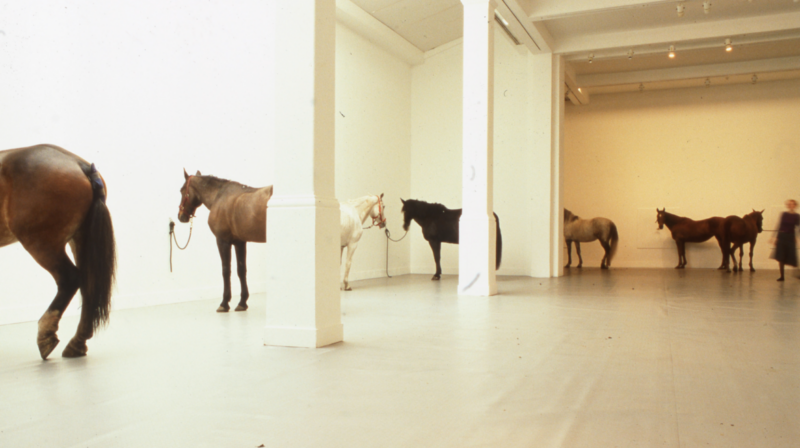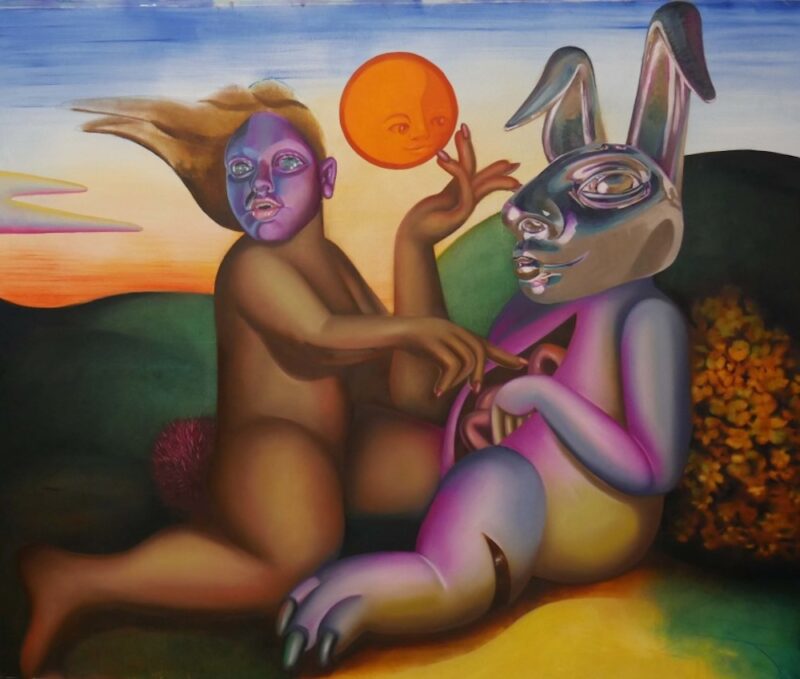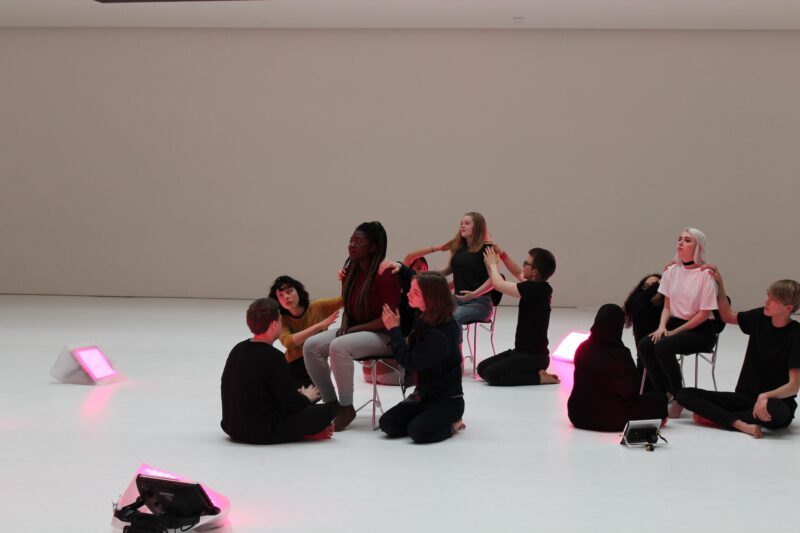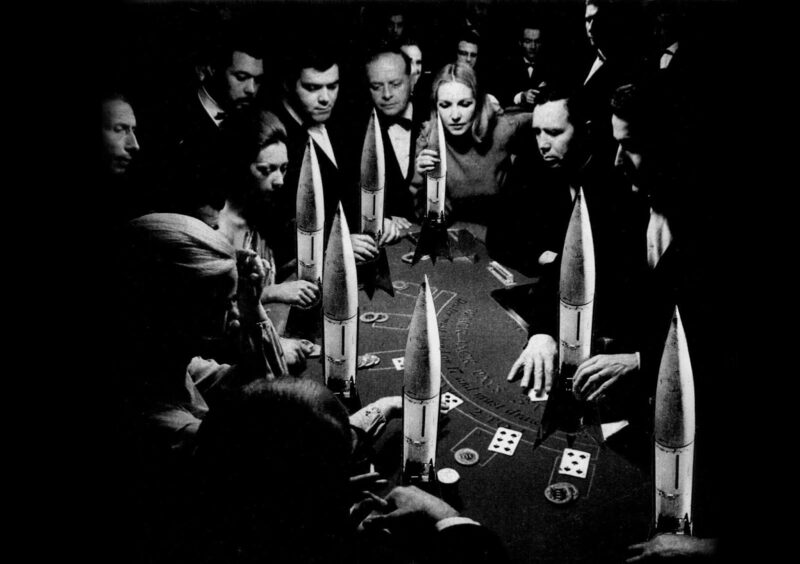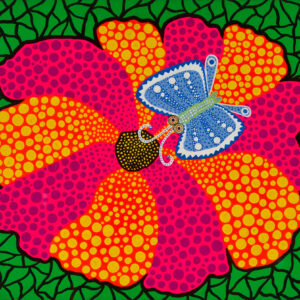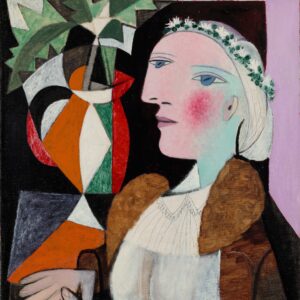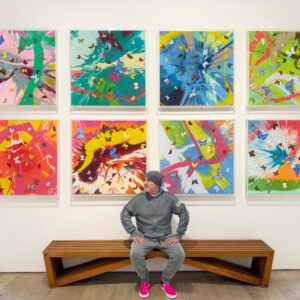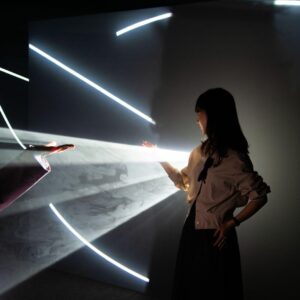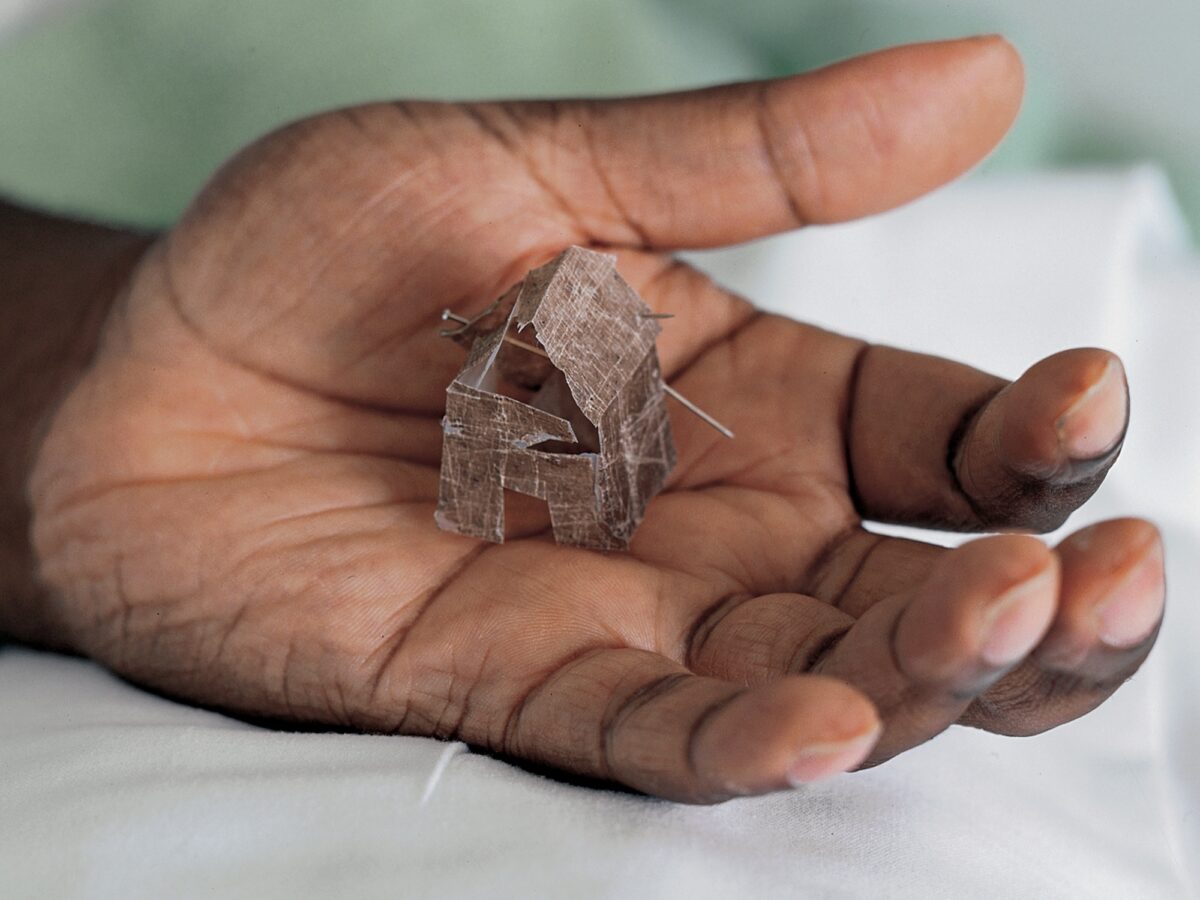
Following acclaimed presentations at both Spike Island (Bristol) and Nottingham Contemporary (Nottingham), Whitechapel Gallery brings this major survey exhibition of the late British multi-media artist Donald Rodney (b.1961, West Bromwich; d.1998, London) to London.
Visceral Canker encompasses the majority of Rodney’s surviving works from 1982 to 1997, including large-scale oil pastels on X-rays, kinetic and animatronic sculptures as well as his sketchbooks and rare archival materials. The exhibition showcases the extraordinary breadth and influence of Rodney’s work, confirming him as a vital figure in British art, and introducing him to a new generation of audiences.
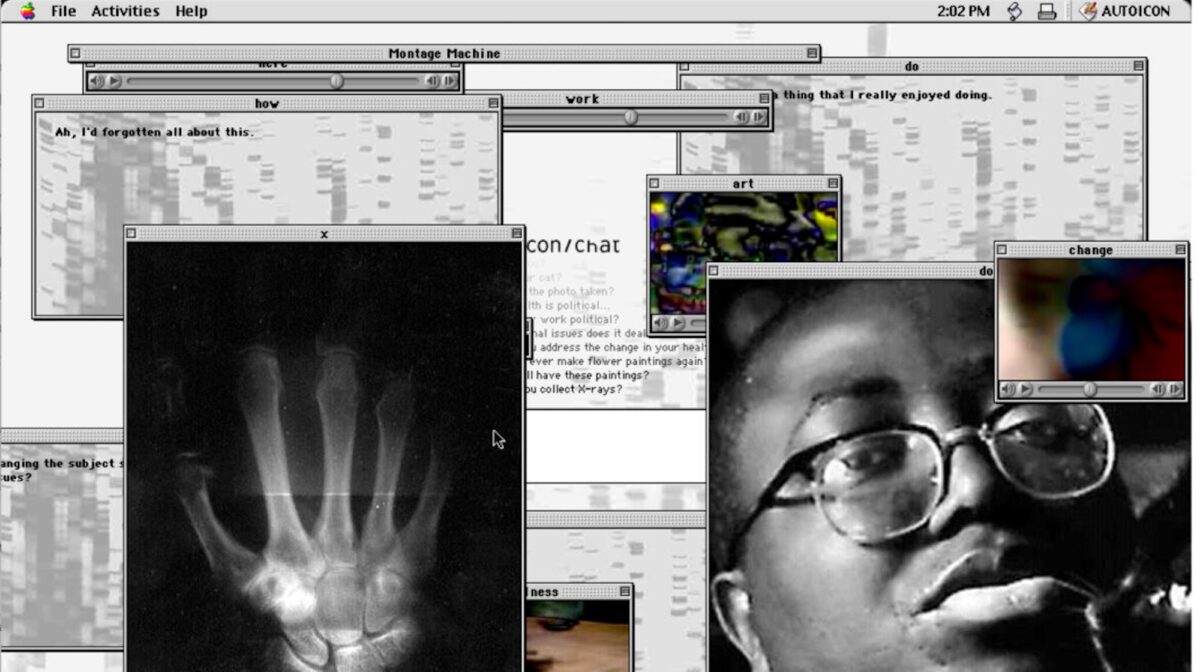
Rodney experimented with new materials and technologies throughout his all too brief career. Working across sculpture, installation, drawing, painting and digital media, Rodney’s wide-ranging practice resists simple categorisation both thematically and materially, due to his innovative approach to both mediums and technical processes.
Rodney lived with sickle cell anaemia and harnessed the condition to confront the prejudices and injustices surrounding racial identity, Black masculinity, chronic illness and Britain’s colonial past. At his untimely death in 1998 from complications arising from sickle cell, Rodney left a multifaceted and influential body of work which has influenced artists, writers and filmmakers on both sides of the Atlantic.
Born to Jamaican parents, Rodney grew up in Smethwick, West Midlands – a centre of racial tensions in the 1960s. He studied Art at Bournville, Nottingham, as well as in London at The Slade, throughout the 1980s, first gaining visibility and prominence as a founding member of the pioneering BLK Art Group: an association of young Black artists, critics and curators formed in Wolverhampton to foreground issues of racism and racial identity through a variety of artistic languages.
The title of the exhibition, Visceral Canker, comes from a 1990 work which comprises two wooden plaques displaying heraldic images, linked together by a system of medical tubes that pump theatrical blood. It exemplifies both the visceral aspect of Rodney’s work and politics, and his persistent scrutiny of the canker, or disease, at the heart of society. Through this work, Rodney examines how the inhumanity of Britain’s colonial history continues to structure life today.
The exhibition includes the seminal work The House that Jack Built (1987), a mixed media installation featuring a crudely fashioned figure seated in front of a house made of X-rays onto which Rodney added text and drawings. From the late 1980s, Rodney made extensive use of medical X-rays in his work, exploring the creative and metaphoric possibilities of the medium.
Visceral Canker also features one of Rodney’s earliest surviving paintings, How the West was Won (1982), made while Rodney was an undergraduate student at Trent Polytechnic (now Nottingham Trent University). It was here that Rodney first met British artist Keith Piper, who became a close friend, and who encouraged him towards a more politically robust art practice, which allowed him to confront and explore issues of Blackness as a central focus.
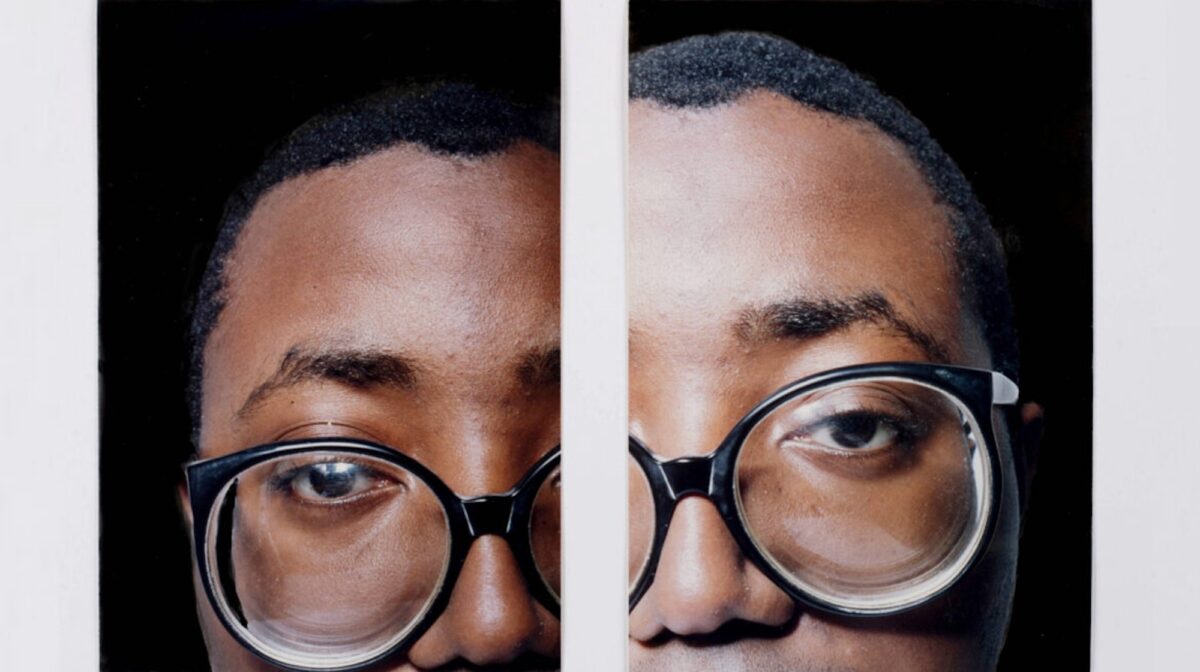
Notably on display is the 35mm slide installation, Cataract (1991) – the first time it has been reconstructed for public viewing. The work comprises three unsynchronised slide projections that produce overlapping images of the fragmented parts of four different Black male faces, including Rodney’s own. Unique to the Whitechapel Gallery presentation – is a major work Camouflage (1997), which Rodney presented at South London Gallery the same year, in what was the last exhibition during his lifetime. The work comprises a large piece of camouflage fabric, onto which a racist slur is stitched, using lettering cut from the same fabric so that it is barely legible. The work draws attention to the way in which everyday racism can remain an insidious presence, even when not visible on the surface. Also, uniquely on view at Whitechapel Gallery are two artworks based on books: Rodney’s personal copy of the Bible, as well as a plaster cast of the catalogue for the Arts Council Collection. Both will be displayed in close proximity to the work, My Catechism, which comprises plaster casts of the entire set of the Children’s Encyclopaedia Britannica.
Towards the end of his life, Rodney’s practice increasingly broke new ground and works like Autoicon (1997–2000), an interactive digital artwork initiated by Rodney and finalised by a group of his close friends after he died known as ‘Donald Rodney plc’, anticipated machine learning technologies. Referencing Jeremy Bentham’s infamous nineteenth-century Auto-Icon, the work simulates both the physical presence and elements of the creative personality of Rodney. Consisting of a Java-based AI and neural network, the platform engages the user in text-based ‘chat’ and provides responses by drawing from a dense body of data related to Rodney, including documentation of artworks, medical records, interviews, images, notes and videos.
Donald Rodney: Visceral Canker is curated by Gasworks Director Robert Leckie and Spike Island Director Nicole Yip and organised at Whitechapel Gallery by Gilane Tawadros and Cameron Foote. The exhibition is presented in partnership with Spike Island and Nottingham Contemporary and is currently on display at Nottingham Contemporary until 5 January, 2025.
This exhibition is part of the West of England Visual Arts Alliance programme with loans of works generously supported by the Weston Loan Programme with Art Fund. Further support come from the Henry Moore Foundation, the Paul Mellon Centre for Studies in British Art and the Pilgrim Trust.
Accompanying the exhibition at Whitechapel Gallery is a rich programme of talks and events exploring some of the key themes of the work as well as looking at Rodney’s legacy and ongoing relevance to contemporary culture. A comprehensive reader produced for the exhibition featuring contributions from the exhibition’s curators as well as scholars and artists including Celeste-Marie Bernier, Richard Birkett, Janice Cheddie, Alice Correia, Lubaina Himid, Virginia Nimarkoh, Gregory Salter, Maud Sulter and Diane Symons will be available.
Alongside the exhibition, curator and writer Richard Birkett, author of Donald Rodney: Autoicon, will curate an accompanying programme of contemporary artist films. This programme will invite further discussion on the relevance and influence of Rodney today, particularly around the intersection of race, disability and technological systems.
There will also be an extensive display of archival materials that provide illuminating context for the exhibition and Rodney’s approach. From his early days as a student at Trent Polytechnic in Nottingham, to his last solo exhibition at South London Gallery, the display encompasses a range of visual elements that document the rigorous often unconventional research methods that Rodney undertook to inform and develop his practice. The archive illuminates how his creative process was not only shaped by his experience of living with sickle cell anaemia, but also by his belief in collective working alongside his colleagues and friends. The archive also includes photographic documentation of the artist’s lost works, which offers further and invaluable insight into Rodney’s life and career.
The exhibition is curated by Gasworks Director Robert Leckie and Spike Island Director Nicole Yip and organised at Whitechapel Gallery by Gilane Tawadros and Cameron Foote.
Donald Rodney: Visceral Canker 12th February – 4th May 2025, Whitechapel Gallery
Donald Rodney: Visceral Canker is presented in partnership with Spike Island and Nottingham Contemporary. The exhibition is at Nottingham Contemporary until 5 January 2025.
About the artist
Donald Rodney (b. 1961, West Bromwich; d. 1998, London) was a British artist. He was born to Jamaican parents, and grew up in Smethwick, on the outskirts of Birmingham. He studied Art Foundation at Bournville School of Art, Birmingham (1980–81); BA Fine Art at Trent Polytechnic in Nottingham (1981–85); and completed a Postgraduate Diploma in Multi-Media Fine Art at Slade School of Fine Art in London (1987). Rodney first gained visibility as a member of the BLK Art Group in the early 1980s, through a series of exhibitions titled The Pan-Afrikan Connection (1981–84). Rodney’s solo exhibitions include Reimagining Donald Rodney, Vivid Projects, Birmingham (2016); Donald Rodney – In Retrospect, iniva, London (2008); 9 Night in Eldorado, South London Gallery (1997); Cataract, Camerawork, London (1991); Critical, Rochdale Art Gallery (1990); Crisis, Chisenhale Gallery, London (1989); The First White Christmas & Other Empire Stories, Saltley Print and Media, Birmingham (1985); and The Atrocity Exhibition & Other Empire Stories, Black Art Gallery, London (1986). Rodney’s work is in the collections of Tate Gallery, London; Arts Council England; the British Council; the Government Art Collection; Museums Sheffield; the National Galleries of Wales; South London Gallery; Wolverhampton Art Gallery; and Birmingham City Art Gallery.
